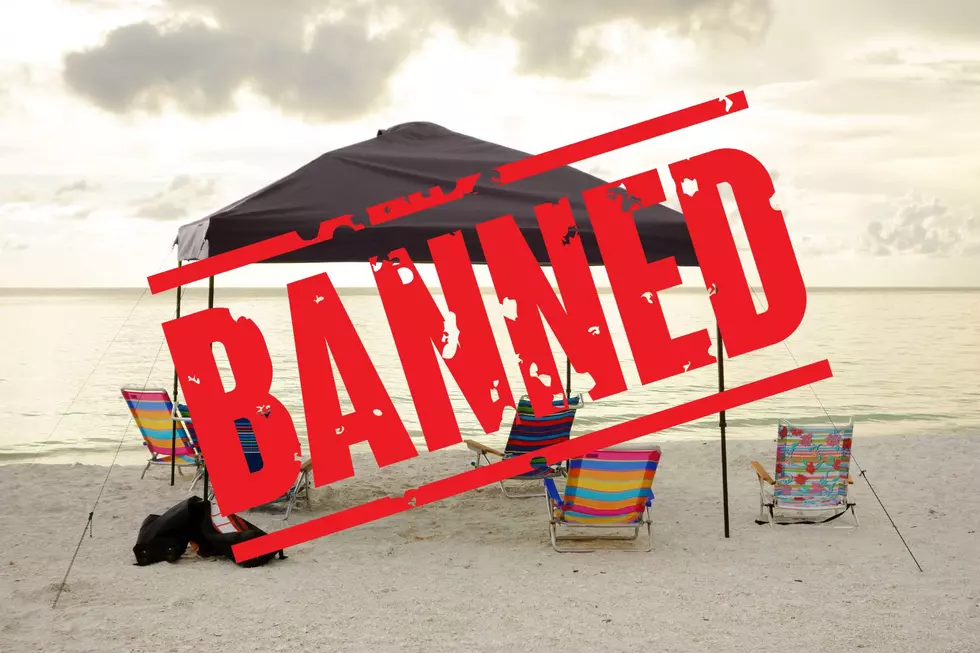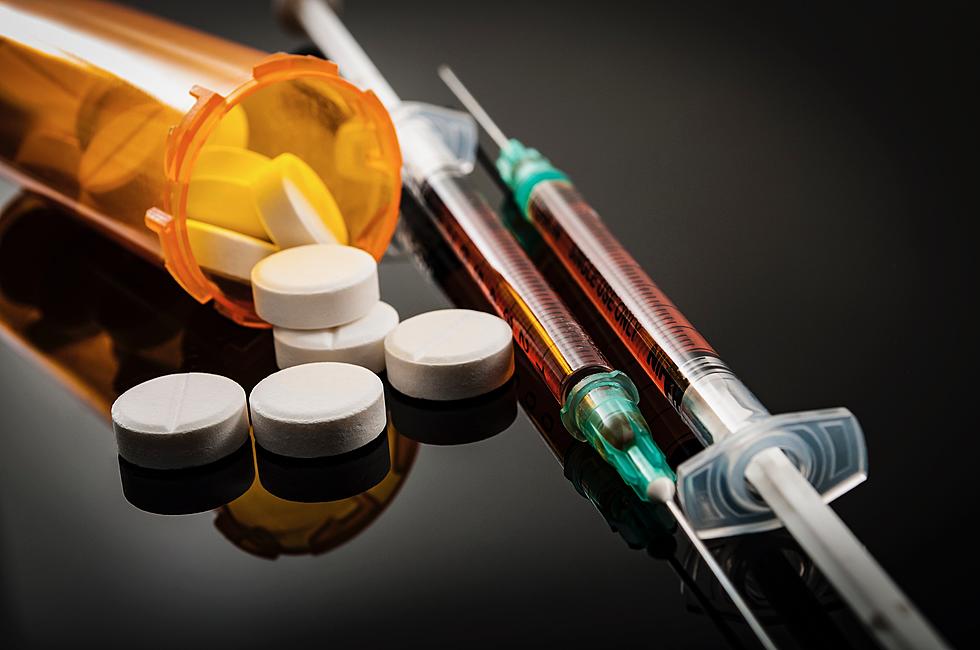
How You Can Help To Curb The Ruthless Drug Epidemic at the Jersey Shore

It may have gotten lost in certain circles in society amid the Covid-19 pandemic, but the drug epidemic continues at the Jersey Shore, New Jersey and beyond.
Education and awareness are two of the tools that we can all use to prevent spread of drugs in our community and compassion is another we can use to find help for our loved ones, friends and others battling through the disease of addiction to walk with them metaphorically or physically into recovery.
In the end, we all play a role in doing even a small part to prevent further drug deals and any way of people becoming hooked on hard narcotics like Heroin, Crack, Cocaine and LSD and prescription pills.
On the 13th episode of 'Eyes On The Jersey Shore' we turn our attention to the drug epidemic and hear from a team of panelists from different backgrounds to help guide you and your loved ones to a healthier community.
The panel consists of Toms River native/Author Alicia Cook who lost her cousin to a heroin overdose in 2006 at the age of 19 and she has used her experiences in life to write poems/stories to help us heal, Phil O'Hara with Hazlet's Hope Network went from someone in trouble with the law, including being arrested twice in one night, for narcotics to a peer recovery specialist helping others find recovery, Toms River Councilman Terrance Turnbach, who is also a Defense Attorney/Lawyer, and discusses what needs to happen in the courtroom to help people and Hazlet Police Chief Ted Wittke, who had served on the Bayshore Narcotics Taskforce, discusses what police are doing to investigate and help people recover.

It is important you watch the show and share the video, for everyone's education.
Here are some of the topics we discussed.
Behaviors of the people buying/selling drugs:
In many ways, not much has changed over the years.
Hazlet Police Chief Ted Wittke explains that while the drugs may have changed, even over the last 20-years, the ways in which people get them has remained about the same.
"These drug transactions, most of them then and today, are done right in front of our eyes. A lot of it occurs in shopping center parking lots, places where there's a larger amount of people where it wouldn't maybe catch the attention of police or bystanders, so I think that holds true today," Chief Wittke said.
Another similarly from his time on the Bayshore Narcotics Taskforce to now is people buying and selling drugs in neighborhoods.
"I would say to anyone out there that if you have a neighbor and you see constant traffic with different people coming in and out, there for a minute or two and on their way, it might be something to look into and notify the police because it could be a place where people are acquiring these drugs," Chief Wittke said.
When someone or multiple people are arrested at a traffic stop or somewhere else, how someone reacts varies but in many cases, there's remorse and a call for help.
"When we bring somebody in that appears to be a drug user or somebody that's an addict, I think for the most part they want to find a way out and it might not be that exact time you have them but over the course of my career I've talked to many of them when they're in our booking room and under no obligation to give me that information at that time at a personal level but a lot of them do open up," Chief Wittke said. "I think that at some point in time everybody is looking for a way out."
Battling an Addiction and Finding Recovery:
It's a team, group effort from family and friends in helping guide a loved one to recovery.
"I used drugs in the beginning because they made me feel good and they were fun, not really understanding that I needed help and in the later stages in my addiction when I was arrested twice in Hazlet in the same night and I was truly living in Hell and I wanted to get better and I didn't know how," O'Hara said.
It's a tough conversation to have but if you do so in small talks, overtime perhaps, they'll find healing.
"It's really meeting people where they're at and sometimes we go in and people are not ready to see that they have a problem or that this is unmanageable so you do your best to plant those seeds and hope that the next time you're in front of them, the next time that they get picked up some of those seeds grab the root and started to grown and then the conversation you have, you can expand on the first conversation," O'Hara said. "Even now with all the stigma, I think that some people are still afraid to admit that their child or their loved one is struggling and they try and hold that in and get through each day the best they can without telling anybody their problems. My advice to anyone struggling, my biggest suggestion is to reach out to somebody who has been through it and can help coach you through this situation."
Speaking with and watching a Loved One Battle the Disease of Addiction:
Alicia Cook, who lost her cousin Jessica to a heroin overdose in 2006 at the age of 19, was very close with her and has used what she saw and heard then and over the years to help eliminate the stigma associated with getting help or battling the disease and offering people signs of hope and ways to speak with a family member about an addiction.
"I lost Jess to an overdose long before the dots were connected and not only the dots between prescription pills and heroin but the dots between addiction and trauma, addiction and mental illness, addiction and the lack of connection," Cook said. "Back then, Jess was still having to drive everyday from Denville to Patterson to buy her drugs. Now, it's happening in everyone's backyard, you don't even need to travel outside your neighborhood."
Cook explains that she has reflected over the years about what happened then and what can happen now with others.
"We were kids even though we wanted to think we were grown up. I think about that a lot, the strides that were made since Jess died and we're still so far behind the 8-ball with progress," Cook said. "We're from the generation Vin that the 'just say no' gospel was preached to, we were taught just say no to drugs and no-one was interested in looking into the underlying reasons why anyone was using these drugs, we were taught to believe that if someone was addicted to a substance they were bad and part of a bad crowd and we were taught to villainize them. We know now that 'just say no' was terrible rhetoric, we know now that if it was just easy to say not there would be far less people with a substance abuse disorder and far less families burying their loved ones."
How Bail Reform has prevented people from finding recovery from addiction:
New Jersey's Bail Reform Laws were changed across the state a couple years ago in legislators and the governor's effort to reduce the prison population, but it's left cracks in the armor and what Monmouth County Sheriff Shaun Golden described to us in 2019 as a revolving door for drug offenders who are back out on the street within 72-hours of their arrest and then they're right back in jail for selling, dealing or abusing drugs.
Under the new bail reform laws, non-violent offenders or prisoners can be released in that time span. The only ones detained are those committing major crimes like murder.
There's been concern among law enforcement and other groups about how the bail reform law has made matters much worse with curbing the drug epidemic and finding people recovery.
"I don't think Bail Reform is something that's helping those that suffer from substance abuse. Bail reform removes the discretion from judges as to on when they can hold somebody or when they have to release somebody. Possession of heroin is a 3rd degree offense, it's a low level offense, it's a 'non-violent' offense per say, even though the families are going through what they're going through and often times if someone is arrested for heroin, straight possession...more than likely they'll be released on a summons or if they are detained, they're going to be detained overnight on pre-trial services," Turnbach said. "It's taking away the discretion of our courts and our judges who used to be able to say 'I've got someone who's struggling here, I'm going to hold them in here in what's called a task evaluation or a treatment evaluation to see what this person needs'. So what you see is someone get arrested for a car burglary because they need the money to buy heroin and they come in and under bail reform, they're released and head right back out and then they're going to get arrested again. It takes arrest after arrest after arrest just for this equation under bail reform to say 'oh, hey, we may have an issue', whereas the courts used to be able to say 'you have a problem here, we're going to hold you to try and treat that problem'. You can't force someone to treat the problem but I think this is one avenue the state legislature should look at."
You can learn more in the video panel discussion:
You can follow Vin Ebenau on Twitter and Instagram and email news tips to vin.ebenau@townsquaremedia.com.
When Ocean and Monmouth County Police saved the day
Have You Seen Them? Monmouth County's Most Wanted
12 Times Being High Cost NJ Residents & Towns
Have You Seen Them? Ocean County's Most Wanted
NEXT: 10 Jersey Shore School Districts Losing Millions From S2 School Funding Formula
Ten times drunk driving changed New Jersey Lives Forever
Strange NJ Laws You've Never Heard Of
Marijuana legal in NJ: How do the laws work?
NEXT: INSIDE JOE PESCI'S HILARIOUSLY OVER-THE-TOP LAVALLETTE MANSION
LOOK: GO INSIDE JON BON JOVI'S $20 MILLION MIDDLETOWN MANSION
Go Inside Mike 'The Situation's' NJ Mansion
TAKE A TOUR OF JON BON JOVI'S NEW $43 MILLION PALM BEACH MANSION
Jersey Shore Nor'easter 2021 Listener Pictures
LOOK INSIDE: The Most Expensive House in Rumson
Peek Inside Snooki's New Toms River Waterfront Home
LOOK: See the iconic cars that debuted the year you were born
NEXT: The 100 Best Places to Live on the East Coast
More From 105.7 The Hawk










